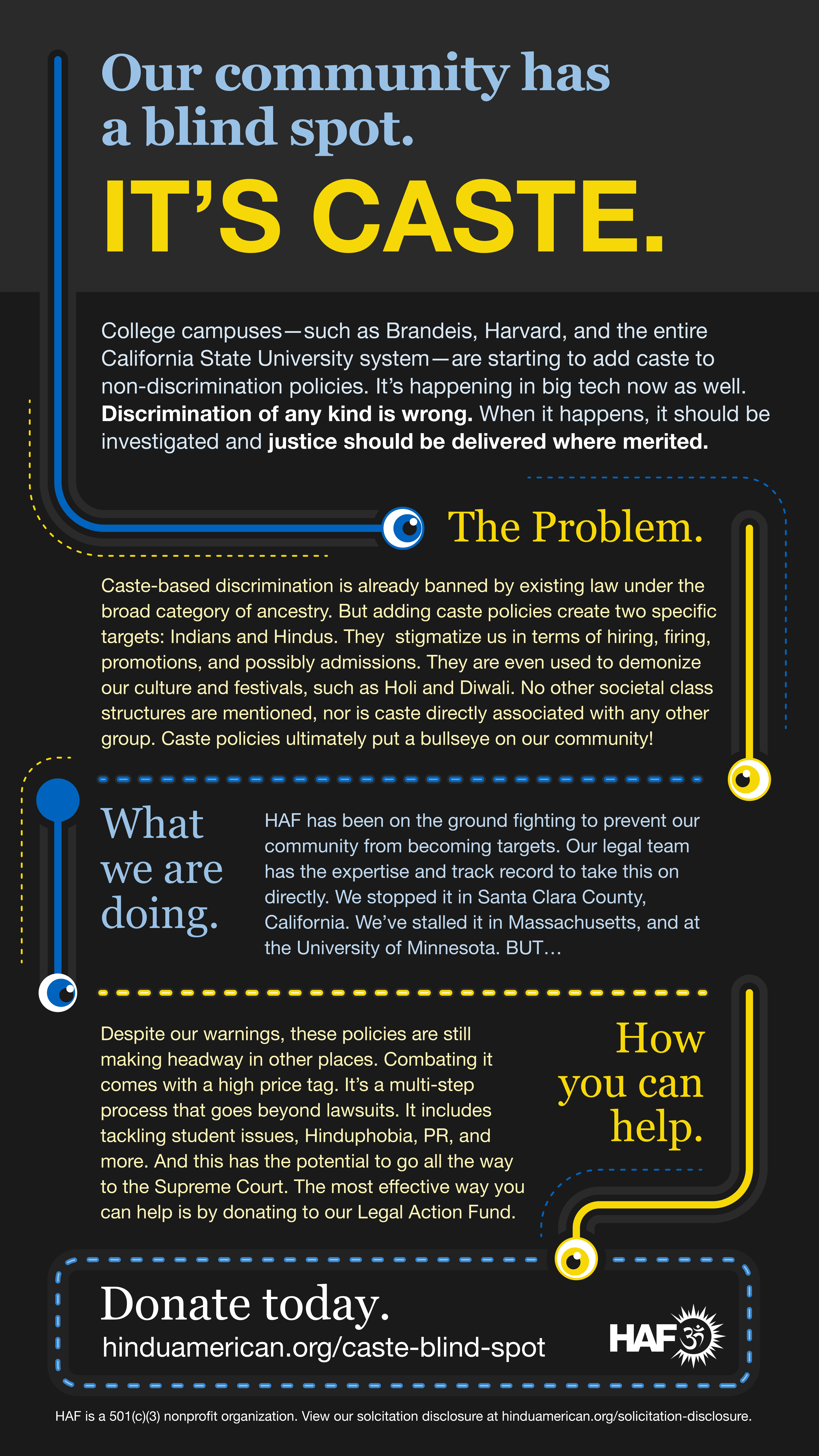One of the first things we’re taught when learning to drive is to check our mirrors for oncoming traffic and surroundings. But much like our own eyes, there’s a spot that gets missed. In our cars, it’s just between the periphery of the side and rear view mirrors. In our eyes, it’s a spot where light passes through an area that has no receptors.
If you don’t turn your head — to check your blind spot — the effects can be disastrous.
There’s a big object in our blind spot right now: Caste
From college campuses to corporations, the past few years have seen a steady increase in efforts to add ‘caste’ as a stand-alone category into non-discrimintion policy. However, the Indian and Hindu community has not taken notice, nor recognized the ramifications. They’re coming in from our own blind spots.
A 2021 survey of Indian Americans clearly shows that caste-based discrimination happens very rarely in America and most Hindu Americans, particularly second and third-generation ones, have no meaningful connection with, and in many cases no meaningful knowledge of, how their families may have identified historically.
Nevertheless, prodded on by ill-informed and biased activists looking to take advantage of the community’s blind spot, well-meaning administrators at institutions such as Brandeis, Colby, and Harvard have added ‘caste’ as a protected category for non-discrimination policy.
The State of California sued Cisco Systems in 2020 for failing to act on allegations of caste-based discrimination, with California claiming that Hindus and Hinduism are inherently discriminatory. That case is still winding its way through the California courts, potentially setting a dangerous precedent targeting our community.
And in the past few months, the California State University system succeeded in adding ‘caste’ to its non-discrimination policy, despite outcry and a petition signed by more than 80 Indian faculty members over fears of being uniquely and unlawfully singled out.








































